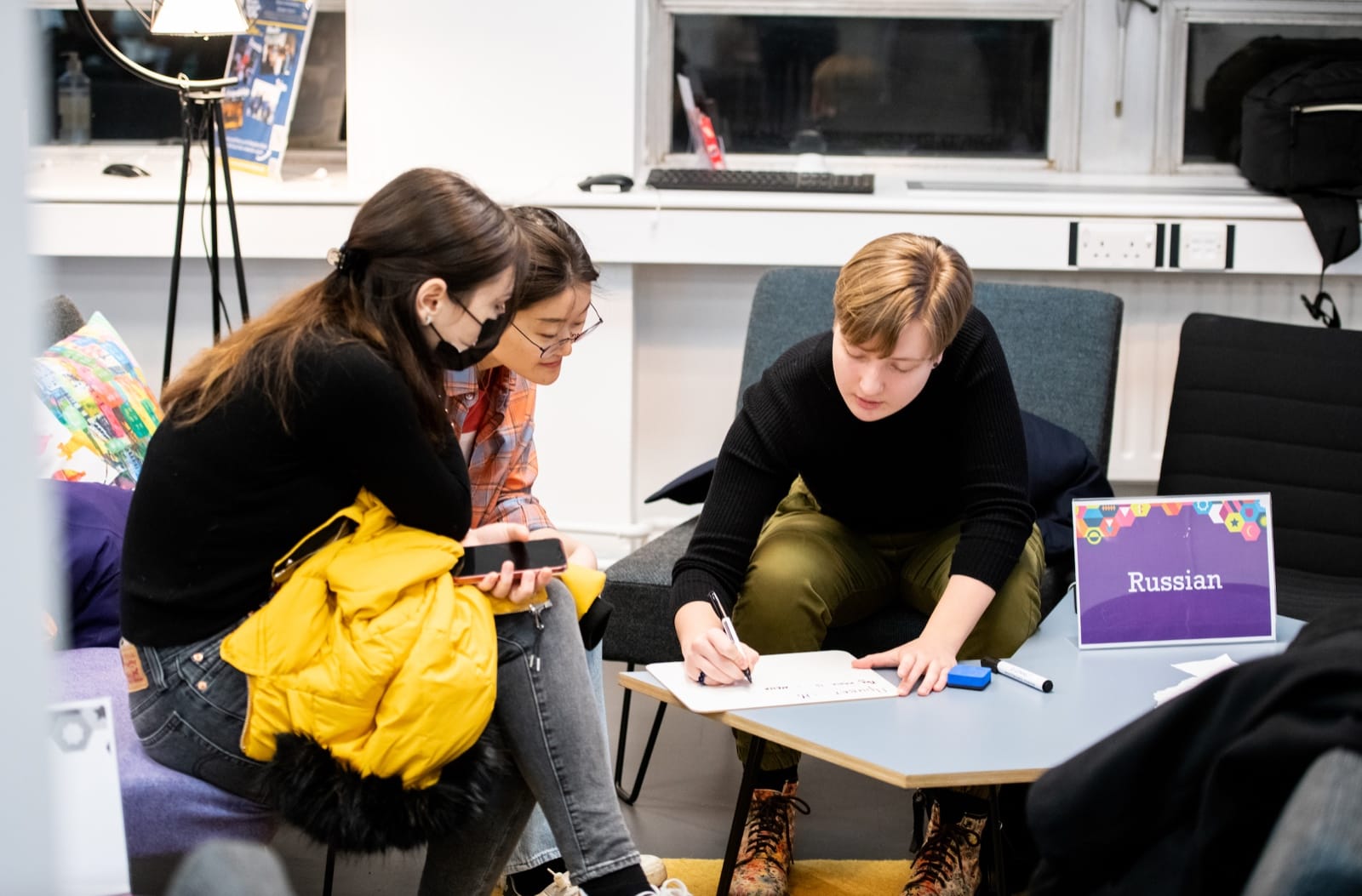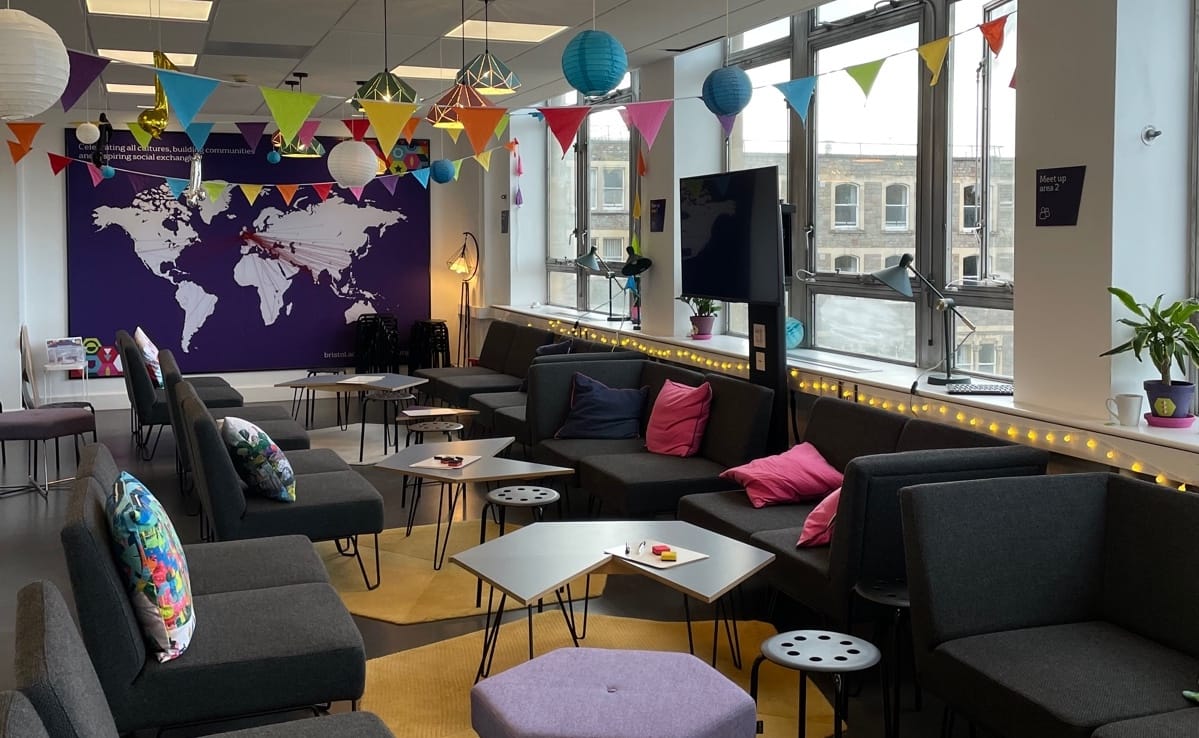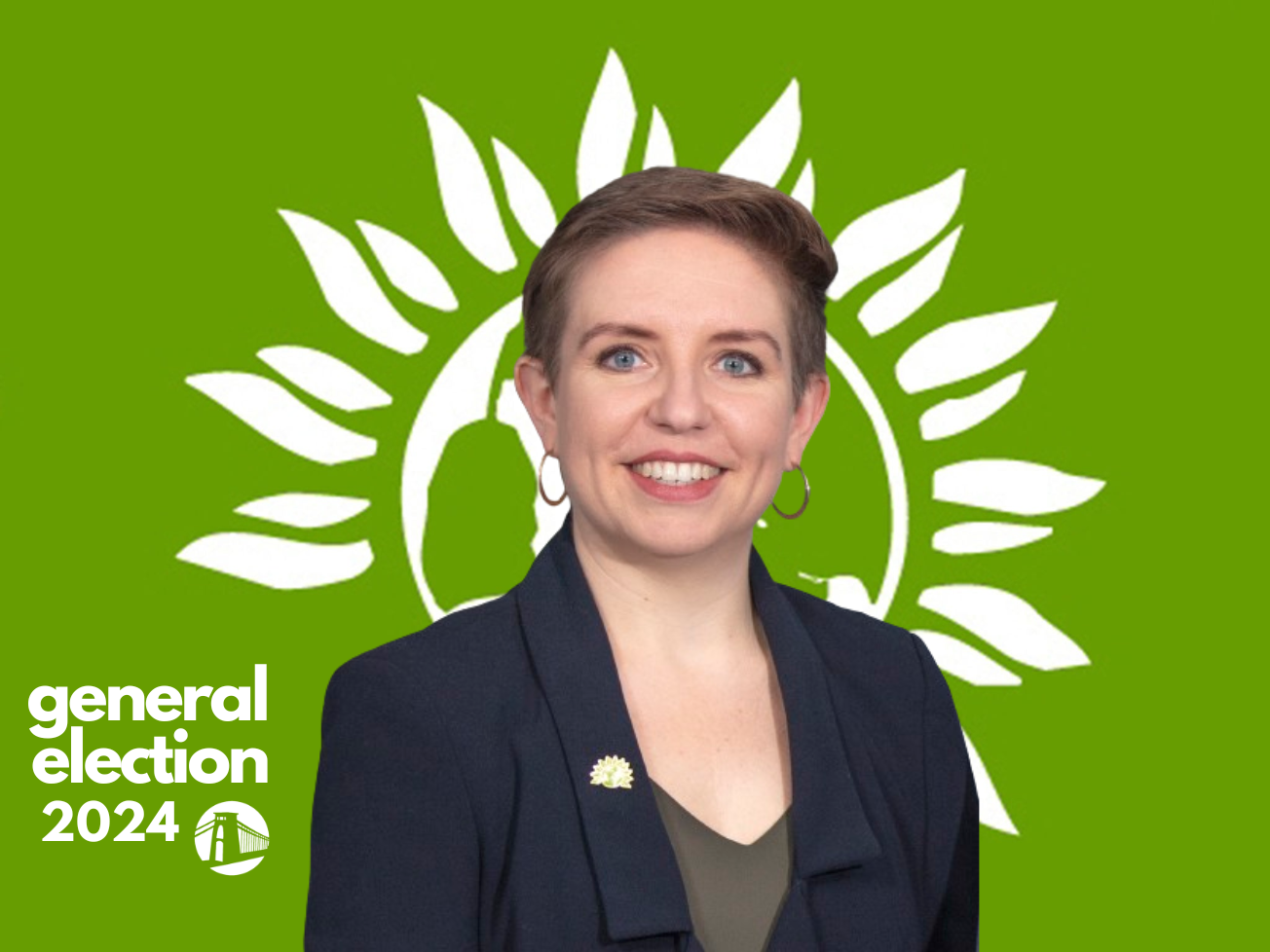By Jess Cohen, Second-year, Sociology
Senate House is a regular spot for University of Bristol students, serving as an ideal space for revision, group study and essay writing. However, many are quick to miss Senate’s first-floor hidden gem: the Global Lounge.
Open from nine to five, Monday to Friday, the Global Lounge is a multi-cultural hub in the heart of campus. Operating as a place for students to both socialise and unwind, the Global Lounge is a vibrant events space which offers a range of dynamic cultural activities.
Some events which have taken place in the Global Lounge over the past month include Hanukkah: A Night to Celebrate and Learn (28th Nov), dedicated to celebrating the Jewish Festival of Light; Japanese Fest (14th Nov), celebrated Japanese traditions and culture; and Romanian Culture Day (30th Nov), where participants enjoyed a range of traditional Romanian activities and games.
Every week, the Global Lounge also runs the Language Café, an innovative and pioneering event on a mission to ‘Celebrate all cultures, build communities and inspire social change.’
First launched in November 2019, the event runs twice every Wednesday. At two o’clock, the sessions are dedicated to students wanting to practice and gain confidence in their conversational English skills.
The evening event at five o’clock offers University of Bristol students and staff a place to practice a multitude of languages, including Spanish, French, Arabic, Cantonese, Hindi, Korean and German, to name a few.
Not only is the Language Café operated by over 150 dedicated volunteers in collaboration with the Global Lounge Team, but it is particularly unique in its inclusivity to people of all levels of language ability. Whether you are a complete beginner or an advanced learner, everyone is welcome.
'Bristol is a very diverse place, and there’s no better time to learn about a different culture than at university'
Speaking to the Head of the Global Lounge, Ola Drummond, she explained that ‘Whilst language cafés are not a new concept, [she] thought that it would be a great addition to the University of Bristol […] an event that would bring everyone together, especially home and international students.’
Ola went on to explain that ‘Once volunteers are recruited, they are then trained in facilitation. This means learning how to handle group conversations, answering questions, what to do if you have someone who is dominating the conversation, or how to help someone who is quiet. It’s a great way for volunteers to develop their skills in leadership, communication and confidence.’
Upon walking into the Language Café, you’re met with a warm, inviting atmosphere and a real sense that participants and volunteers truly want to be there. Ola explains that what makes the Language Café so effective in community building and creating a sense of belonging is that ‘Everyone there comes at the same time, every week, with a shared objective and a common purpose, to exchange cultures or speak the language.’

In speaking to a third-year Biomedical Science student who volunteers as a native Thai speaker at the Language Café, it became clear that it is not just an opportunity for participants to learn a new language, but also a chance to discover the vibrant traditions and customs of new cultures through fellow students. He noted: ‘The main appeal of the Language Café isn’t necessarily learning the technicalities of a language, the grammar, the spelling. I think it’s more about understanding each other’s cultures a lot better. Bristol is a very diverse place, and there’s no better time to learn about a different culture than at university.’
Furthermore, each week a different topic is chosen as the central focus of the session. Topics have included: Bodies and Health, Legends and Folklore, Food and Culinary Customs, and Visual and Sonic Arts. This allows participants to expand their knowledge of different cultures and traditions from around the world and acts as a starting point to help facilitate interesting and dynamic conversations between learners and volunteers.

Whilst it is compulsory in England to study a language in secondary school until the age of fourteen, many choose to stop doing so once it is no longer obligatory. However, various studies have emphasised the importance of learning languages for individuals’ critical thinking and problem-solving skills, as well as for improving an understanding of grammar, conjugation and sentence structures.
In a practical sense, learning new languages also elicits a greater understanding of other cultures and increases one’s ability to communicate and interact positively with people from other countries. Speaking to a third-year Astrophysics student and native Italian-speaking volunteer, she expressed that ‘it’s so fun to exchange knowledge […] comparing holidays and traditions in the different countries.’
Homelessness: Investigating Bristol's ongoing crisis
‘You are often alone in trying to navigate a space that was not built for you’ | Is university accessible enough for disabled students?
Research has demonstrated that bilingual staff are valued highly in the workplace for their ability to cross cultural barriers and that learning or teaching a new language creates a multitude of employment and career opportunities. Here at the University of Bristol, working as a volunteer at the Language Café contributes to the Bristol PLUS Award, a prestigious qualification earned through participation and completion in extracurricular activities.
If you can speak a different language and teaching others is something you are interested in, make sure to apply by 28 January to volunteer from 6 February onwards, via the Language Café website. Alternatively, if you simply want to learn a new language while meeting others in a stress-free and welcoming environment, no bookings are required, just come along to the Language Café at five o’clock on Wednesday evenings.
Featured Image: University of Bristol / Christy Nunns
Will you be visiting the Language Café?








